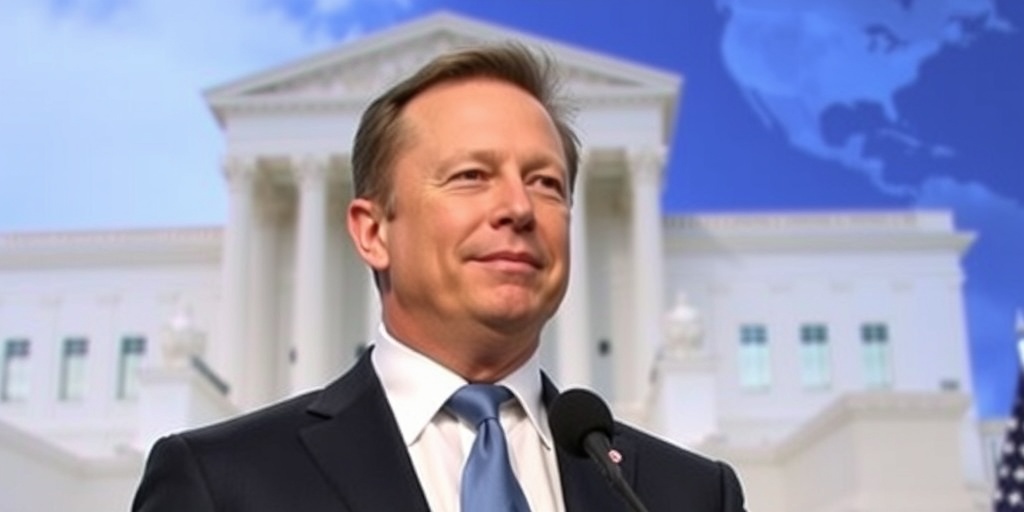Now Reading: Rising Number of Americans Struggle to Afford Healthcare: Gallup Poll
-
01
Rising Number of Americans Struggle to Afford Healthcare: Gallup Poll
Rising Number of Americans Struggle to Afford Healthcare: Gallup Poll

Rising Costs of Living Heighten Americans’ Healthcare Struggles
The rising costs of living in the United States have become a troubling reality for many citizens, not only due to soaring prices of essentials like eggs and housing but also because of the escalating costs associated with healthcare. A recent survey released by West Health and Gallup on Wednesday sheds light on the struggles faced by millions in affording necessary medical care and medications. This survey comes at a time when conversations are intensifying around potential cuts to government healthcare coverage, raising concerns about the future for many American families.
According to the survey conducted from mid-November to late December 2024, an alarming 11 percent of respondents indicated that they were unable to afford necessary medications or medical care over the past three months. This marks the highest level of reported financial struggles for healthcare in the four years since the survey began. To put this into perspective, this figure translates to approximately 91 million adults in the United States who confess they would not be able to pay for medical care, should they require it.
The disparities in healthcare affordability among different demographic groups are particularly concerning. The survey reveals that Black and Hispanic adults, as well as those with the lowest incomes, are disproportionately affected by these challenges. Among individuals who earn less than $24,000 annually, a staggering one-quarter reported being unable to access or afford medical care in the past three months. Dan Witters, a senior researcher at Gallup, underscores the dire implications of this widening gap, stating, “The extent to which that has broadened and expanded really exposes how vulnerable these classes of individuals are.”
Interestingly, the survey results indicate that white adults and higher-income earners have not experienced significant changes in their ability to afford healthcare. The percentage of white adults asserting they can’t afford care remains unchanged at 8 percent, the same as in 2021. This stark contrast points to troubling inequalities within the healthcare system, highlighting how economic status plays a crucial role in access to necessary services.
Experts attribute the increasing difficulty in affording healthcare to several factors, including rising insurance premiums, additional costs incurred during doctor visits, and recent Medicaid coverage rollbacks. The ever-increasing costs of healthcare have created a financial burden for many, and any potential cuts to Medicaid or the elimination of tax subsidies for Affordable Care Act (ACA) plans — both of which have been discussed by lawmakers — could worsen the situation significantly.
Tim Lash, president of the West Health Policy Center, articulated the dire state of affairs, stating, “It puts further pressure on a system that already has a financial toxicity that is pervasive.” He highlighted that many families are grappling with medical debt, emphasizing the seriousness of foregoing medical care, which could lead to severe health consequences or even death. Unlike skipping on purchasing a new appliance, the stakes are considerably higher when it comes to seeking medical attention.
While the ACA has brought about significant improvements over the past 15 years, particularly in expanding Medicaid coverage, many still find healthcare unaffordable. Sara R. Collins, a health economist and vice president for healthcare coverage and access at the Commonwealth Fund, points out that even insured individuals are often left with inadequate coverage to manage their medical expenses. “We’re not a country where health care is affordable,” she stated, emphasizing that the remnants of healthcare costs continue to trouble many.
If legislative proposals advocating for significant cuts materialize, Collins warns that the number of Americans unable to afford healthcare could rise dramatically. Millions could potentially lose coverage or be forced to switch to less comprehensive plans, further exacerbating an already tenuous situation.
Collins concluded with a poignant reminder of the historical context surrounding healthcare affordability in the United States, declaring, “We’re getting back to levels that existed before the Affordable Care Act.”
As the struggle for affordable healthcare intensifies against a backdrop of increasing living costs, the ramifications of these challenges present a worrying outlook for many Americans. The future of healthcare affordability hangs in the balance, leaving millions wondering how they will manage their healthcare needs amidst rising costs and potential legislative changes.
Stay Informed With the Latest & Most Important News
Previous Post
Next Post
-
 01New technology breakthrough has everyone talking right now
01New technology breakthrough has everyone talking right now -
 02Unbelievable life hack everyone needs to try today
02Unbelievable life hack everyone needs to try today -
 03Fascinating discovery found buried deep beneath the ocean
03Fascinating discovery found buried deep beneath the ocean -
 04Man invents genius device that solves everyday problems
04Man invents genius device that solves everyday problems -
 05Shocking discovery that changes what we know forever
05Shocking discovery that changes what we know forever -
 06Internet goes wild over celebrity’s unexpected fashion choice
06Internet goes wild over celebrity’s unexpected fashion choice -
 07Rare animal sighting stuns scientists and wildlife lovers
07Rare animal sighting stuns scientists and wildlife lovers





















